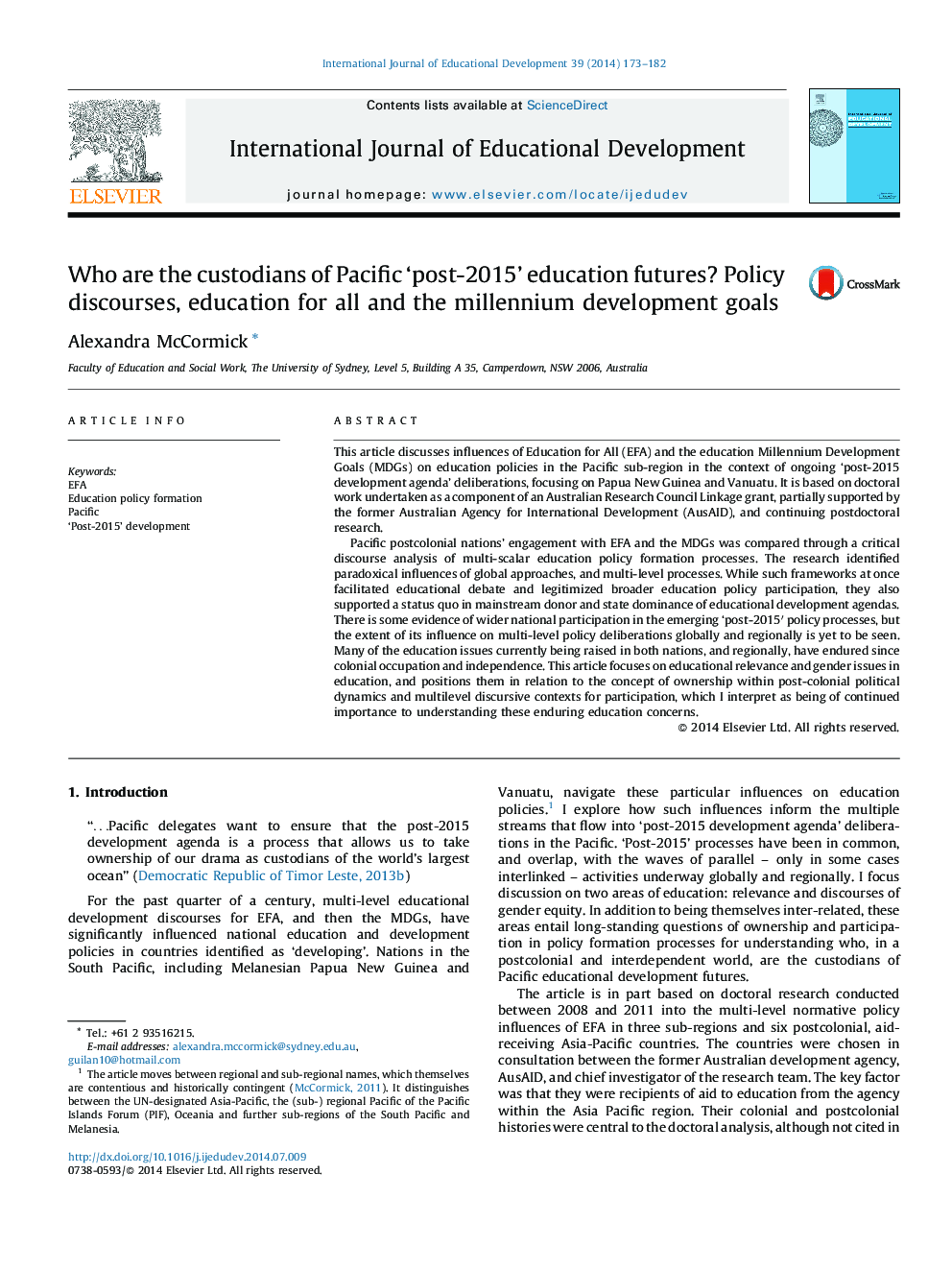| Article ID | Journal | Published Year | Pages | File Type |
|---|---|---|---|---|
| 6841406 | International Journal of Educational Development | 2014 | 10 Pages |
Abstract
Pacific postcolonial nations' engagement with EFA and the MDGs was compared through a critical discourse analysis of multi-scalar education policy formation processes. The research identified paradoxical influences of global approaches, and multi-level processes. While such frameworks at once facilitated educational debate and legitimized broader education policy participation, they also supported a status quo in mainstream donor and state dominance of educational development agendas. There is some evidence of wider national participation in the emerging 'post-2015â² policy processes, but the extent of its influence on multi-level policy deliberations globally and regionally is yet to be seen. Many of the education issues currently being raised in both nations, and regionally, have endured since colonial occupation and independence. This article focuses on educational relevance and gender issues in education, and positions them in relation to the concept of ownership within post-colonial political dynamics and multilevel discursive contexts for participation, which I interpret as being of continued importance to understanding these enduring education concerns.
Related Topics
Social Sciences and Humanities
Social Sciences
Development
Authors
Alexandra McCormick,
